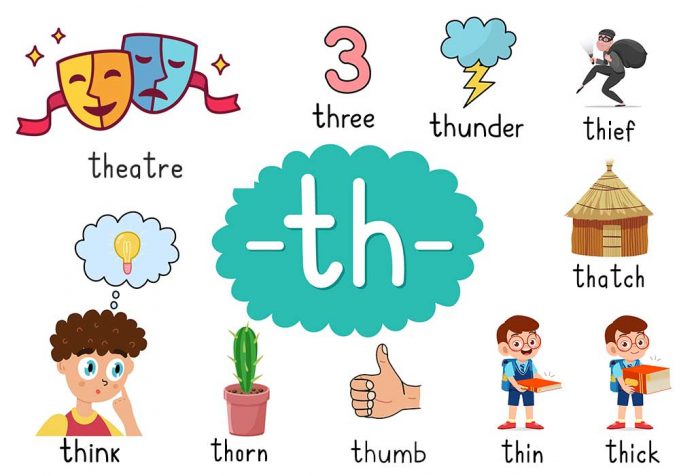Introduction to Words That Start with Ex
The English language boasts a vast array of words, each contributing to its rich tapestry of meanings and nuances. Among these, the prefix ‘ex’ holds significant importance, as it conveys the idea of ‘out of’ or ‘from.’ This prefix is instrumental in forming various words, each carrying its unique implication and context. Understanding Words That Start with Ex not only enhances vocabulary but also fosters a deeper appreciation for word formation in the English language.
In the context of linguistic studies, prefixes play a crucial role in the construction of words, altering their meanings and often providing insights into their etymology. The prefix ‘ex’ often signifies a departure from a previous state or condition, indicating movements such as ‘out of,’ ‘beyond,’ or ‘away from.’ For instance, the word ‘exclude’ suggests the act of deliberately leaving something or someone out, while ‘expand’ implies the action of increasing in size or scope. These examples illustrate the prefix’s flexibility and significance in conveying complex concepts succinctly.
Moreover, words that begin with ‘ex’ are abundant across various fields, including sciences, arts, and everyday conversation, making them essential for effective communication. From terms like ‘examine,’ which means to inspect carefully, to ‘exotic,’ which describes something foreign or unusual, the prefix opens doors to diverse meanings. As we delve deeper into this exploration of vocabulary, it becomes evident that words starting with ‘ex’ are not merely linguistic components, but also vital elements that enhance clarity and expressiveness in language.
Common Words That Start with Ex

The prefix “ex” is derived from Latin, meaning “out of” or “from.” It is often used to form words that indicate a removal, a substitution, or an outward action. Below is a curated list of common Words That Start with Ex along with their definitions and examples of usage to illustrate their contexts.
Example: An example can refer to a specific instance or illustration of a broader concept. For instance, “The teacher provided an example to clarify the mathematical problem at hand.”
Examine: To examine means to inspect or scrutinize closely. “The doctor will examine the patient’s symptoms to determine the appropriate diagnosis.”
Exceed: This word signifies going beyond a defined limit. “If we exceed the budget this quarter, we will need to adjust our spending in the next period.”
Exclude: To exclude means to intentionally leave something out or to prohibit participation. “The committee decided to exclude late submissions from the competition.”
Exert: This term entails applying force or influence. “The athlete will need to exert considerable effort to break the record during the race.”
Expand: This word indicates the action of increasing in volume, area, or number. “The company plans to expand its operations into international markets next year.”
Examine: This refers to careful inspection or analysis. “Researchers need to examine the data thoroughly before reaching any conclusions.”
Each of these words serves a unique purpose in the English language, illustrating the diverse applications of the “ex” prefix. Understanding and utilizing these terms can enhance one’s vocabulary, providing clarity and precision in communication.
Uncommon and Interesting Words That Start with Ex

The English language is replete with Words That Start with Ex which often signifies a departure, removal, or a prior state. Among the lesser-known terms, “exacerbate” stands out. This verb means to make a problem, bad situation, or negative feeling worse. For instance, one might say, “The new policy may exacerbate existing inequalities.” This word stems from the Latin ‘exacerbatus,’ meaning ‘made harsh.’ Understanding its intricacies can enhance one’s expression in various contexts.
Another enriching term is “exegesis.” This noun refers to a critical explanation or interpretation of a text, particularly religious scripture. In academic circles, exegesis is vital for understanding the historical and cultural contexts of texts. Scholars often engage in rigorous exegesis to provide depth to their interpretations, enriching our comprehension of nuanced literature and the scriptures.
Consider the word “exculpate,” which means to clear someone of blame or fault. Originating from the Latin ‘exculpatus,’ it contrasts with the notion of culpability. This term is frequently utilized in legal contexts, signifying the process of absolving someone from guilt. For instance, a well-prepared defense may successfully exculpate a defendant from accusations. It underscores how language can reflect complex ethical discussions.
Another captivating verb is “extrapolate.” It indicates the act of estimating or concluding something based on existing data or trends, widely used in scientific research and statistical analysis. For example, scientists might extrapolate future climate change effects based on current atmospheric data. This term emphasizes the importance of informed predictions in crucial fields.
In summary, Words That Start with Ex enrich our language, offering various expressions that convey intricate ideas and concepts. By familiarizing ourselves with these terms, we not only expand our vocabulary but also gain a deeper appreciation for the diverse landscape of the English language.
The Origin and Etymology of the Ex Prefix

The prefix “ex” has its origins in the Latin word “ex,” which translates to “out of” or “from.” This simple yet profound prefix has significantly shaped many English words, contributing to a rich array of meanings. In its evolution from Latin to contemporary English, “ex” has maintained its core idea of separation or movement from one state to another, reflecting a fundamental shift that can enhance our understanding of various terms.
In Latin, the use of “ex” often indicated a transition, including meanings such as “out of,” “away from,” or “no longer.” These meanings have been preserved in numerous English derivatives. For example, the word “exhale” denotes the act of breathing out, and “exclude” signifies the act of keeping someone out of a group or activity. Each of these terms illustrates the prefix’s role in denoting an exit from a particular state or position, making it a critical component in the formation of various words.
The transition from Latin to English also demonstrates how “ex” assimilated into broader linguistic contexts. It is noteworthy that while many words borrowed from Latin maintain an academic or formal tone, “ex” has found its way into everyday vocabulary, therefore enhancing its reach and applicability. Words featuring this prefix often depict processes that involve change or removal, revealing its versatility. Furthermore, this prefix can augment basic terms to evoke deeper meanings; for instance, “ex-partner” vastly differs from simply stating “partner” as it implies a transition in the relational status.
Understanding the etymology of “ex” not only enriches vocabulary but also facilitates comprehension of other derived terms. By examining the prefix’s origin, learners can appreciate the nuanced meanings of words, which can enhance their linguistic prowess and provide them with greater insight into the English language.
Exploring the Usage of Words That Start with Ex in Literature

The exploration of Words That Start with Ex in literature reveals the richness and versatility of the English language. These words, often denoting a sense of outward movement or indicating something that is out of the ordinary, have been employed by various authors to add depth and nuance to their narratives and poetic expressions. Such terminology plays a crucial role in articulating themes of existence, exclusion, exploration, and expressions of emotion, thereby contributing significantly to the overall tone and style of literary works.
One notable example is the use of ‘exile’ in literature, which encapsulates the emotional and physical separation of characters from their homeland or loved ones. Renowned authors such as James Joyce in his seminal work, “A Portrait of the Artist as a Young Man,” artfully weave the theme of exile into their characters’ journeys. This word evokes a profound sense of loss and longing, which resonates strongly with themes of identity and cultural dislocation.
Similarly, the word ‘extrapolate’ has found its place in literary analysis, often utilized by scholars attempting to derive broader meanings from specific texts. This technical vocabulary illustrates how literature often requires readers to extract implications beyond the surface, inviting deeper engagement with the content. In science fiction, writers like Isaac Asimov frequently use extrapolation to project future societal trends based on current realities, thus merging literary art with philosophical discourses.
Moreover, the term ‘exhilarating’ captures moments of joy and excitement within narratives. Authors such as Virginia Woolf use such words to convey transcendent experiences, enriching the reader’s understanding of characters’ emotional landscapes. This integration not only enhances the descriptive quality of the writing but also serves to connect the reader to the various aspects of human experience.
Words That Start with Ex in Everyday Conversation

In daily interactions, Words That Start with Ex commonly surface in various contexts, enhancing our communication. For instance, consider a conversation between two colleagues discussing a recent project.
Jane: “Did you hear that Mark is looking for an executive to lead the team for the next quarter?”
John: “Yes, I heard he wants someone with extensive experience in project management.”
In this dialogue, the words “executive” and “extensive” highlight the significance of vocabulary that starts with “ex”. These terms not only convey specific meanings but also add a professional tone to the discussion. The use of such words illustrates their relevance in workplace scenarios, showcasing how they can enhance clarity and professionalism.
Another scenario may occur in a casual setting, such as a family dinner where members are sharing experiences. Imagine a conversation about planning a family trip:
Sarah: “I think we should explore some exotic locations this summer.”
Tom: “That sounds amazing! Have you ever been to an exotic beach?”
In this example, the word “exotic” serves to describe enticing destinations, enriching the dialogue. The presence of “ex” words allows participants to paint vivid pictures, enhancing the overall exchange. Such choices contribute to a more engaging and colorful conversation.
It’s clear that words starting with “ex” play a role not only in formal discourse but also in casual chats. These words facilitate effective communication and foster understanding in both personal and professional contexts. Recognizing their importance can encourage individuals to incorporate them into their everyday language, thereby broadening their vocabulary and improving articulatory skills.
Tips for Expanding Your Vocabulary with Ex Words

Enhancing your vocabulary can be a rewarding endeavor, particularly when focusing on Words That Start with Ex There are numerous effective strategies to incorporate a broader range of ‘ex’ vocabulary into your daily language. Utilizing flashcards is one highly effective method. Create a set of flashcards featuring various ‘ex’ words along with their definitions and example sentences. Regularly reviewing these cards will help reinforce your memory and enhance your understanding. Consider using spaced repetition to optimize retention, allowing you to focus more on words that need additional practice.
Engaging in word games also offers a fun way to expand your vocabulary. Games such as Scrabble, Boggle, or crossword puzzles can challenge you to utilize ‘ex’ words more frequently. Look out for word lists that highlight ‘ex’ vocabulary and incorporate them into your gaming experience. Word apps or online quizzes can serve a similar purpose, making learning interactive and enjoyable.
In addition to these methods, reading literature that prominently features words beginning with “ex” can be incredibly beneficial. Seek out novels, articles, and even poetry that contain a wide variety of ‘ex’ terms. As you read, pay close attention to context and usage, which can help you internalize meanings and nuances. Consider writing down any unfamiliar ‘ex’ words you encounter, along with their definitions, to further commit them to memory.
Collaboration with peers can also be an advantageous approach. Form study groups where you discuss and explore ‘ex’ vocabulary, challenging each other to use these words in conversation. This active engagement fosters a more profound connection to the words and encourages their practical use in everyday discussions. By incorporating these techniques, you create numerous opportunities to enrich your vocabulary with ‘ex’ words effectively.
Fun Facts About Words That Start with Ex

Words that begin with the prefix “ex” are quite prevalent in the English language, often denoting removal, exclusion, or a former state. For instance, this prefix can be traced back to Latin origins, where it implies “out of” or “from.” Interestingly, some of the longest English Words That Start with Ex” include “extraordinarily,” which consists of 16 letters, and “excommunicated,” totaling 15 letters. These lengthy terms demonstrate just how versatile the prefix can be in creating compelling vocabulary.
Statistical data concerning word usage can be illuminating as well. In a survey of commonly spoken English, words starting with “ex” account for approximately 1.2% of everyday vocabulary. This includes various forms such as “example,” “exclusive,” and “exhibit,” which not only illustrate the prefix’s versatility but also underline its frequent occurrence in both spoken and written language. Furthermore, words like “exuberant” convey energy and enthusiasm, while “exemplary” suggests a model or standard worth emulating, showcasing how context can shape their meanings.
Culturally, the prefix “ex” appears in various languages, often maintaining its meaning. In Spanish, for example, “ex” is used similarly to denote a former state, as seen in “exmarido,” meaning “ex-husband.” Words like “exotic” often spark curiosity, highlighting the diversity of meanings associated with different languages. This cross-linguistic connection enriches our understanding of the prefix and emphasizes the extensive reach of English vocabulary. The diversity in meanings and usage reveals not only the richness of the lexicon but also the cultural nuances embedded in language.
Conclusion
Words That Start with Ex represent an essential component of the English language, providing depth and richness that enhance communication. These words, originating from Latin, typically convey a sense of movement out of, away from, or beyond a certain point, thereby serving as powerful tools for expression. The prefix “ex-” allows for the construction of terms that can vividly articulate ideas, making them particularly useful in diverse contexts, ranging from academic writing to everyday conversations.
In exploring this rich vocabulary, one might encounter words such as “examine,” “extract,” and “exemplify” which not only expand one’s lexical repertoire but also foster a clearer conveyance of nuanced thoughts. The use of “ex” words often implies a transition or transformation, signaling shifts in perspective that can resonate with listeners and readers alike. As language continually evolves, the integration of these terms encourages more effective communication and greater engagement with others.
Encouraging the active exploration of words starting with “ex” can significantly enrich one’s linguistic journey. By incorporating these terms into everyday discourse, individuals can express themselves more thoughtfully and precisely. Learning their meanings and applications not only broadens vocabulary but also enhances personal and professional relationships. Therefore, as you continue to delve into the vast ocean of vocabulary in the English language, consider the myriad opportunities to utilize “ex” words, facilitating a more engaging and dynamic dialogue with those around you.










